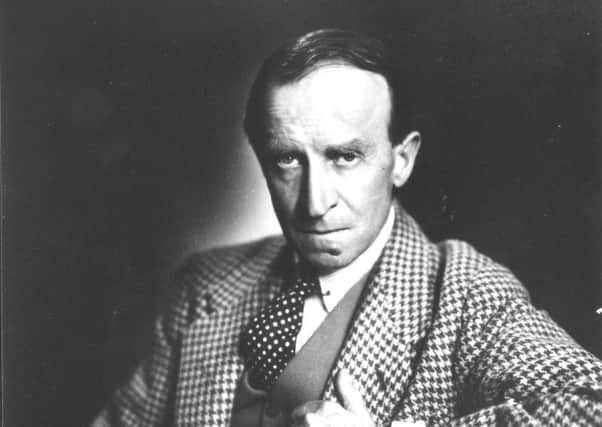Dr Mary Brown: John Buchan not given his due


Such is his literary hero’s appeal, Edinburgh-based publisher Polygon recently announced plans for a new instalment. Dundee-born author Robert J Harris is behind The Thirty-One Kings, the first new Hannay book for more than 80 years, due for release in October. If successful, a series featuring Major-General Hannay could follow.
Many simply remember the Hitchcock film version of The Thirty-Nine Steps. Yet this classic adventure yarn has two brilliant sequels, Greenmantle and Mr Standfast, which have often been praised because of their authentic descriptions of war – Buchan was an intelligence officer in the First World War.
Advertisement
Hide AdAdvertisement
Hide AdGreenmantle, set in the Middle East during the Arab revolt against Turkey, is used today to educate diplomats trying to understand the complex problems of the area.
Buchan was more than a thriller writer: he was diplomat, journalist, novelist, lawyer, historian – and that rare thing, a politician who was a man of his word. As a writer of an extensive range of fiction, he is still supremely readable, combining page-turning plots with memorable descriptions of landscape. Yet he is underappreciated in his native land.
Much of this prejudice arises from misconceptions about him. Some of his characters may use language inappropriate today, but Buchan critiqued gung-ho imperialists and was fascinated by different cultures – he creates a significant and charismatic leader in Prester John. Uniquely amongst his contemporaries, he presents a sympathetic portrait of the German Kaiser in Greenmantle whilst acknowledging the harm done by his military expansionism. Neither was he anti-Semitic – he had many Jewish friends and supported a Jewish homeland.
Some of his heroines are a bit soppy, but more frequently Buchan’s women are feisty, brave and assertive, and invariably much brighter than men. Buchan’s understanding of the complex psychological interplay between the sexes was well ahead of his time. Several novels, like Huntingtower, present ordinary folk as both humorous and heroic – although Buchan laughs with them, not at them.
Was he really a snob? As a son of the manse, Buchan won a scholarship to Oxford and married Susan Grosvenor from a rich English family. If anything, he was slightly in awe of some of the aristocratic people he mixed with.
While his most famous character is being revived for a modern readership, it’s worth revisiting the wonderful biography by Janet Adam Smith which debunks the myths about a man who was surely one of Scotland’s greatest talents.
Dr Mary Brown is a freelance educational consultant. She lives in Banchory, Deeside.